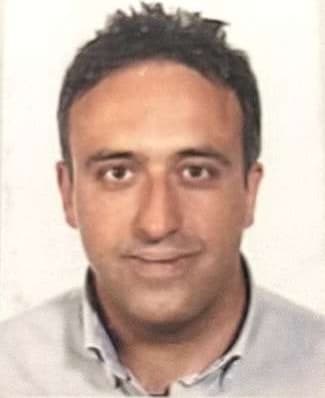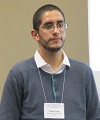Studying at the University of Verona
Here you can find information on the organisational aspects of the Programme, lecture timetables, learning activities and useful contact details for your time at the University, from enrolment to graduation.
Academic calendar
The academic calendar shows the deadlines and scheduled events that are relevant to students, teaching and technical-administrative staff of the University. Public holidays and University closures are also indicated. The academic year normally begins on 1 October each year and ends on 30 September of the following year.
Course calendar
The Academic Calendar sets out the degree programme lecture and exam timetables, as well as the relevant university closure dates..
| Period | From | To |
|---|---|---|
| I semestre (Lingue e letterature straniere) | Sep 26, 2022 | Dec 23, 2022 |
| Annuale (Lingue e letterature straniere) | Sep 26, 2022 | May 27, 2023 |
| II semestre (Lingue e letterature straniere) | Feb 13, 2023 | May 27, 2023 |
| Session | From | To |
|---|---|---|
| ESAMI LINGUE - sessione invernale | Jan 9, 2023 | Feb 11, 2023 |
| ESAMI LINGUE - sessione estiva | May 29, 2023 | Jul 22, 2023 |
| ESAMI LINGUE - sessione autunnale | Aug 28, 2023 | Sep 23, 2023 |
| Session | From | To |
|---|---|---|
| LAUREE LINGUE - sessione autunnale (a.a. 2021-2022) | Nov 7, 2022 | Nov 12, 2022 |
| LAUREE LINGUE - sessione straordinaria (a.a. 2021-2022) | Mar 31, 2023 | Apr 6, 2023 |
| LAUREE LINGUE - sessione estiva (a.a. 2022-2023) | Jul 10, 2023 | Jul 15, 2023 |
Exam calendar
Exam dates and rounds are managed by the relevant Foreign Languages and Literatures Teaching and Student Services Unit.
To view all the exam sessions available, please use the Exam dashboard on ESSE3.
If you forgot your login details or have problems logging in, please contact the relevant IT HelpDesk, or check the login details recovery web page.
Should you have any doubts or questions, please check the Enrollment FAQs
Academic staff
 daniele.caccin2@unibo.it
daniele.caccin2@unibo.it
 silvia.cavalieri@univr.it
silvia.cavalieri@univr.it
 piero.costaleon@univr.it
piero.costaleon@univr.it
 elisa.dallarosa@univr.it
elisa.dallarosa@univr.it
 wenwen.huang@univr.it
wenwen.huang@univr.it
 neliana.orlandi@univr.it
neliana.orlandi@univr.it
 sara.paolini@univr.it
sara.paolini@univr.it
 elena.rango@univr.it
elena.rango@univr.it
 cecilia.sideri@univr.it
cecilia.sideri@univr.it
 tania.triberio@univr.it
tania.triberio@univr.it
Study Plan
The Study Plan includes all modules, teaching and learning activities that each student will need to undertake during their time at the University.
Please select your Study Plan based on your enrollment year.
1° Year
| Modules | Credits | TAF | SSD |
|---|
1st foreign language2nd foreign language1st foreign literature and cultureGerman literature and culture 1
Spanish Literature and Culture 1
2nd foreign literature and cultureGerman literature and culture 1
Spanish Literature and Culture 1
2° Year activated in the A.Y. 2023/2024
| Modules | Credits | TAF | SSD |
|---|
1st foreign language2nd foreign language1st foreign literature and culture or a related courseEnglish literature and culture 2
French literature and culture 2
German literature and culture 2
Spanish literature and culture 2
2nd foreign literature and culture or a related courseEnglish literature and culture 2
French literature and culture 2
German literature and culture 2
Spanish literature and culture 2
Geography of communication and international trade
Italian literature and culture
Modern and Contemporary Economic History
Theory and Techniques of communication
3° Year It will be activated in the A.Y. 2024/2025
| Modules | Credits | TAF | SSD |
|---|
1st foreign language2nd foreign languageComparative and European Public law
Principles of international marketing
| Modules | Credits | TAF | SSD |
|---|
1st foreign language2nd foreign language1st foreign literature and cultureGerman literature and culture 1
Spanish Literature and Culture 1
2nd foreign literature and cultureGerman literature and culture 1
Spanish Literature and Culture 1
| Modules | Credits | TAF | SSD |
|---|
1st foreign language2nd foreign language1st foreign literature and culture or a related courseEnglish literature and culture 2
French literature and culture 2
German literature and culture 2
Spanish literature and culture 2
2nd foreign literature and culture or a related courseEnglish literature and culture 2
French literature and culture 2
German literature and culture 2
Spanish literature and culture 2
Geography of communication and international trade
Italian literature and culture
Modern and Contemporary Economic History
Theory and Techniques of communication
| Modules | Credits | TAF | SSD |
|---|
1st foreign language2nd foreign languageComparative and European Public law
Principles of international marketing
| Modules | Credits | TAF | SSD |
|---|
Legend | Type of training activity (TTA)
TAF (Type of Educational Activity) All courses and activities are classified into different types of educational activities, indicated by a letter.
Italian Language [Cognomi A-E] (2022/2023)
Teaching code
4S00914
Teacher
Coordinator
Credits
6
Language
Italian
Scientific Disciplinary Sector (SSD)
L-FIL-LET/12 - ITALIAN LINGUISTICS
Period
I semestre (Lingue e letterature straniere) dal Sep 26, 2022 al Dec 23, 2022.
Learning objectives
Aim of the course is transmitting fundamental knowledge on Italian language and its variability: oral and written Language, specific scientific Languages, different textual typologies. Textual competence and abilities on writing will be improved by practice of analysis and production. Student will be able to recognize variability of Italian Language in time, space, medium, context and register, also in relation to learning of foreigner languages; moreover, student will be able to analyze texts in Italian Language and assing them to different textual typologies.
Prerequisites and basic notions
Excellent knowledge of the Italian language and its grammatical and syntactic structures.
Program
The course is divided into a theoretical and a practical part, aimed at strengthening students' writing skills.
1. Elements of Italian linguistics: the linguistic norm and the geographical, historical and social varieties of Italian; introduction to phonology.
2. Writing in Italian: the text and the different text types; coherence and cohesion; elements of Italian grammar (syntax, punctuation).
3. Exercises in analysis and textual production: the e-mail; the degree thesis; the summary.
Bibliography
Didactic methods
Lectures in the classroom and individual exercises.
Teaching support methods Materials (slides, exercises, bibliographic additions) will be made available on the e-learning platform for students, attending and non-attending students.
NB Students of the Italian language courses are bound to their professorship, assigned on the basis of the initial of the surname (AE, FO, or PZ). It is not possible to pass from one chair to another and it is required to take the exam with the assigned teacher.
Learning assessment procedures
The exam will take place in written form. The test will be divided into three parts: 1. closed-ended or short open-ended questions relating to topics of a theoretical nature; 2. practical exercises (on the uses of the verb, connectives and punctuation); 3. written production, with reference to the text types treated in class. There is no separate test for non-attending students.
Evaluation criteria
The exam aims to verify the acquisition of some fundamental notions of Italian linguistics and evaluate the writing skills of students according to the criteria of formal correctness, effectiveness, relevance, correspondence to the context.
Criteria for the composition of the final grade
The result will be expressed in thirty. The points will be distributed proportionally to the type of questions.
Exam language
Italiano
Type D and Type F activities
Nei piani didattici di ciascun Corso di studio è previsto l’obbligo di conseguire un certo numero di CFU di tipologia D e di tipologia F.
CFU D (attività a scelta dello studente)
I CFU D possono essere acquisiti mediante:
- insegnamenti non obbligatori nel proprio piano didattico (previa approvazione del Presidente del Collegio didattico per insegnamenti non selezionabili in autonomia)
- attività accreditate dal Collegio didattico
- competenze linguistiche (diverse o ulteriori) rispetto a quelle obbligatorie
- tirocini o stage
- TALC (competenze trasversali).
Competenze trasversali TALC
Nota bene: i corsi TALC sono riconosciuti solo come CFU D.
Il numero di CFU D va calcolato complessivamente sull’intero triennio/biennio e non è legato all'annualità.
CFU F
I CFU F sono solitamente relativi ad abilità informatiche, competenze linguistiche, stage e tirocini e ulteriori attività formative accreditate in questa tipologia dal Collegio Didattico.
Nel corso di laurea in Lingue e culture per il turismo e il commercio internazionale sono previste le seguenti tipologie:
- 3 CFU per terza lingua (livello B1)
- 3 CFU per informatica
- 6 CFU per stage obbligatorio.
Le competenze informatiche possono essere acquisite attraverso:
- il superamento della prova pratica presso le aule informatiche di Ateneo,
- la frequenza dei corsi attivati da scuole e centri accreditati dall’AICA (Associazione Italiana per l’Informatica e il Calcolo Automatico) o riconosciuti dalla Provincia e dalla Regione e superamento della relativa prova finale. Le domande per il riconoscimento delle competenze informatiche acquisite precedentemente vengono esaminate dalla Commissione per il riconoscimento delle Competenze Informatiche.
Le attività di stage sono finalizzate a far acquisire allo studente una conoscenza diretta in settori di particolare utilità per l’inserimento nel mondo del lavoro e per l’acquisizione di abilità specifiche d’interesse professionale.
To discover all the teaching activities accredited by the foreign teaching college click here
Career prospects
Module/Programme news
News for students
There you will find information, resources and services useful during your time at the University (Student’s exam record, your study plan on ESSE3, Distance Learning courses, university email account, office forms, administrative procedures, etc.). You can log into MyUnivr with your GIA login details: only in this way will you be able to receive notification of all the notices from your teachers and your secretariat via email and soon also via the Univr app.
Student login and resources
Gestione carriere
Assegnazione tutore
Attività accreditate D/F
Calendario didattico dettagliato
Cambio lingua curriculare
Competenze informatiche
Competenze linguistiche (prima e seconda lingua)
Competenze linguistiche in triennale (terza lingua CFU F)
Compilazione del piano didattico
Corso di Lingua portoghese
Erasmus+ e altre esperienze all'estero
Linguistic training CLA
Presentazione dei corsi di studio e Open day
Graduation
List of theses and work experience proposals
| Stage | Research area |
|---|---|
| PROGETTO MAMBRINO Stage per bibliografia | Various topics |
Saperi minimi
Stage e tirocini
Nel piano didattico della laurea triennale in Lingue per il turismo e il commercio internazionale (L12) è previsto un periodo di stage obbligatorio (CFU 6) in organizzazioni imprenditoriali.
Le attività di stage sono finalizzate a far acquisire allo studente una conoscenza diretta in settori di particolare interesse per l’inserimento nel mondo del lavoro e per l’acquisizione di abilità professionali specifiche.
Le attività di stage sono svolte sotto la diretta responsabilità di un singolo docente presso studi professionali, enti della pubblica amministrazione, aziende accreditate dall’Ateneo veronese.
I crediti maturati in seguito ad attività di stage saranno attribuiti secondo quanto disposto nel dettaglio dal “Regolamento d’Ateneo per il riconoscimento dei crediti maturati negli stage universitari” vigente.
- Tutte le informazioni in merito agli stage per futuri studenti sono disponibili alla pagina Stage e tirocini.
- Tutte le informazioni in merito agli stage per studenti iscritti sono pubblicate in MyUnivr - come fare per - stage e tirocini.
- Tutte le informazioni in merito agli stage per le aziende sono disponili alla pagina Stage e tirocini per azienze.
Ulteriori informazioni al seguente link https://www.univr.it/it/i-nostri-servizi/gestione-carriere-studenti-lingue-e-letterature-straniere/stage-e-tirocini-lingue-e-letterature-straniere

 +39 045802 8409
+39 045802 8409























































